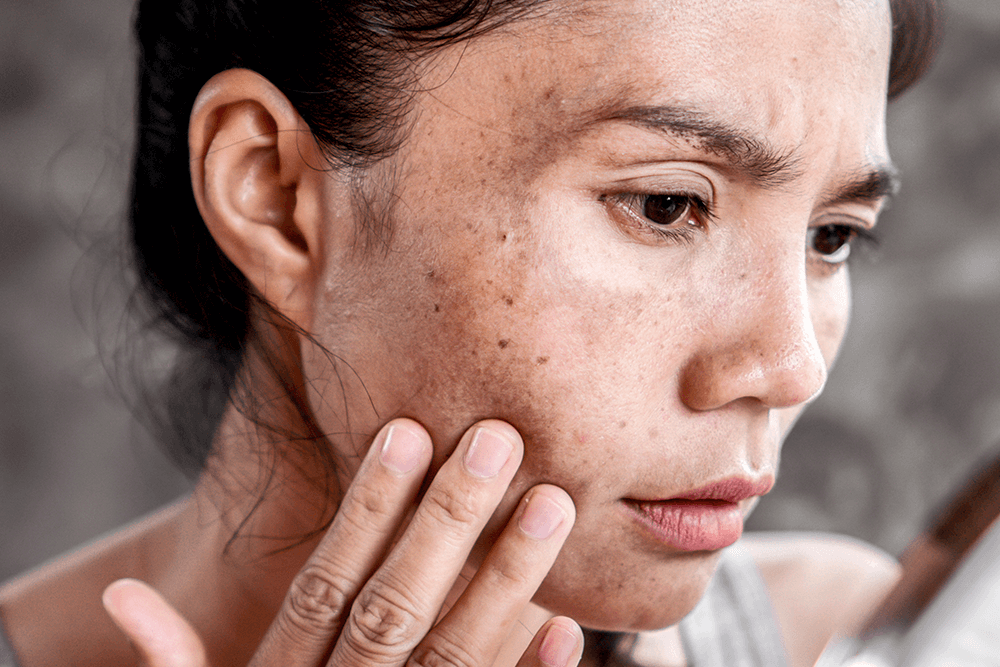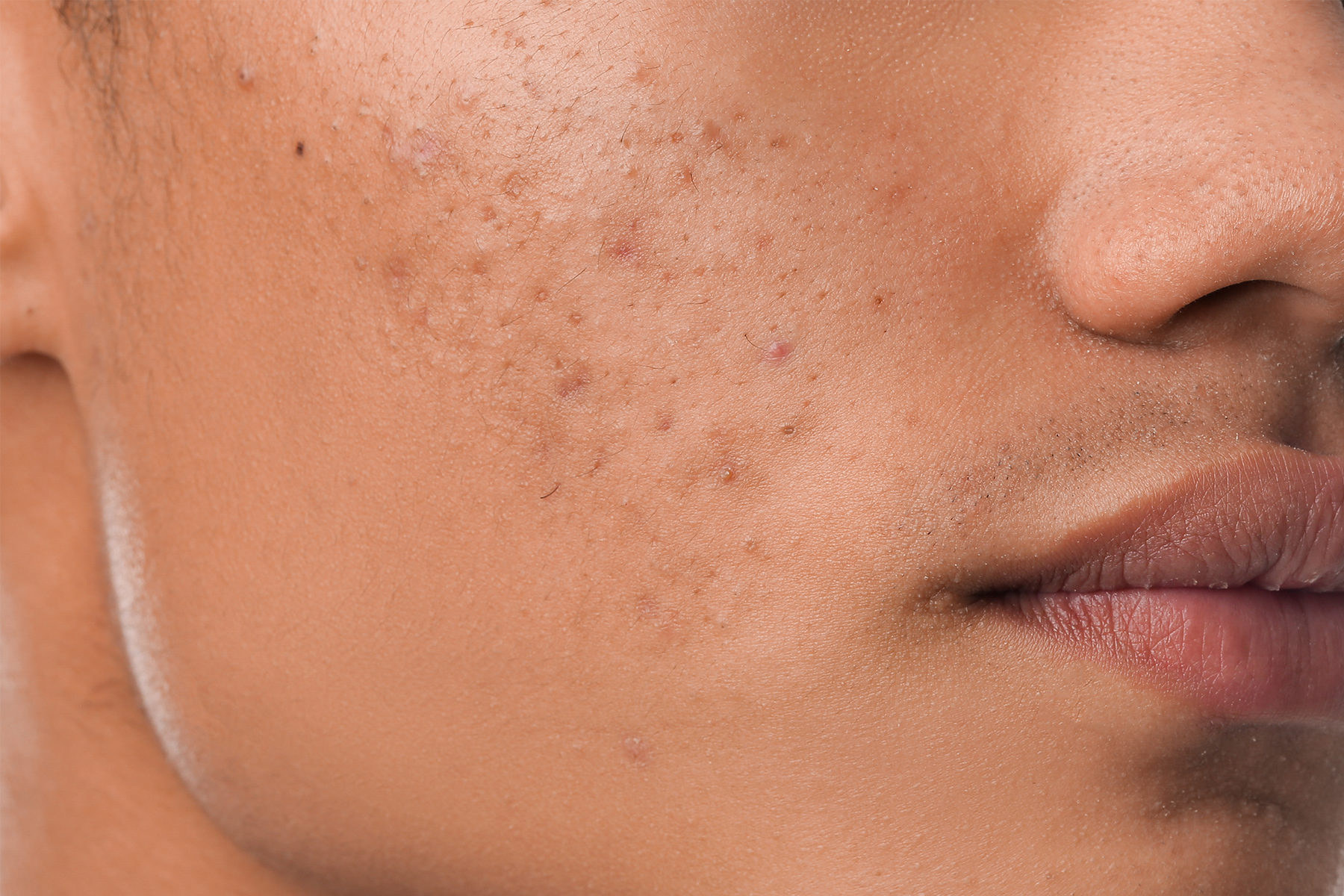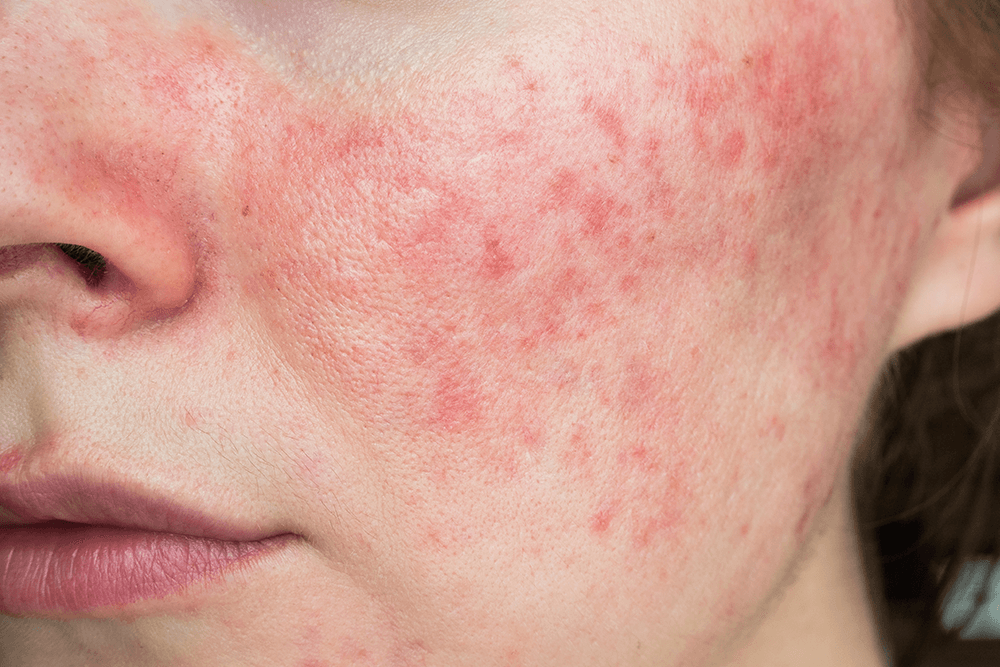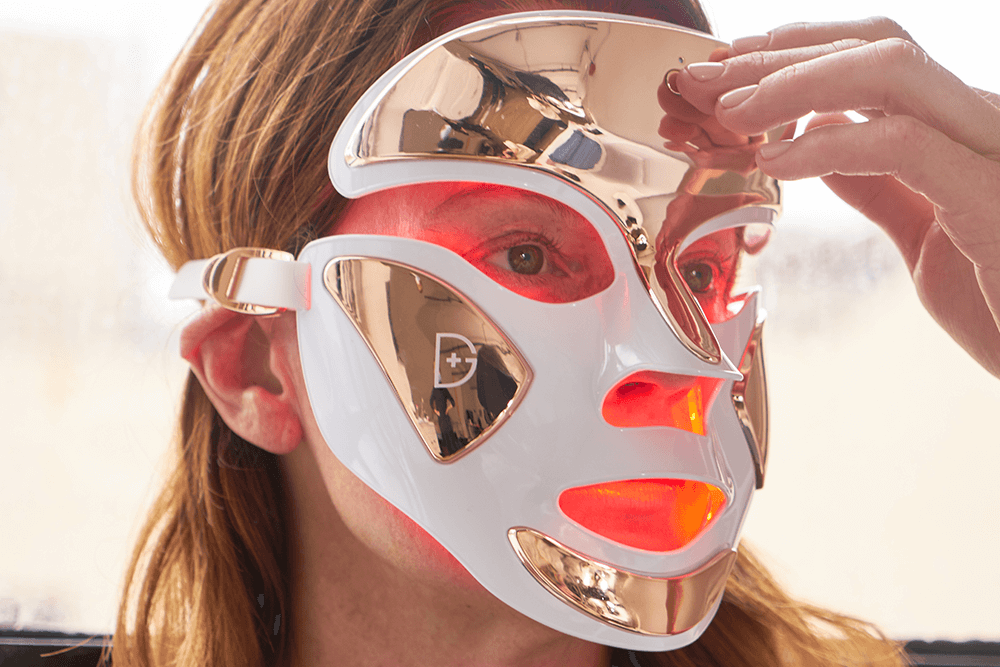The+Source
We know freckles are having a moment, but what’s cute today could be regrettable a year from now. And unlike freckle pen makeup, real dark spots don’t wash off. So if you’re ready to tackle errant, unwanted skin discoloration, we have the remedy.
What are dark spots?
Dark spots are pretty much what they sound like: Any area of skin that’s deeper in color than the surrounding skin. They can crop up anywhere you have skin, like the hands, chest, and back. That said, the face is the most common location for dark spots to appear — or, at least, the area people seem to be most concerned about.
What are the different types of dark spots?
- Freckles
- Melasma
- Acne scars
- Sun spots (aka solar lentigines or liver spots)
What causes dark spots?
For the most part, dark spots (or hyperpigmentation) are the result of skin damage. The number-one culprit of this type of skin damage is, no surprise, UV exposure. (There’s really not much good that ever comes from the combination of UV radiation and skin tissue.)
But hyperpigmentation can develop from more than just skipped sunscreen. Skin injury, resulting from something like a particularly bad breakout or as a reaction to an aggressive skincare treatment, can trigger post-inflammatory hyperpigmentation. Hormones are another factor: Pregnant and menopausal women have a higher incidence of melasma, as do those taking oral contraceptives.
What’s the best skincare routine to erase dark spots?
The best way to address dark spots is with a combination of exfoliation, treatment, prevention, and all-around good general skincare, outlined below. While this routine is geared toward the face, it can be used on any area plagued by unwanted discoloration, such as the décolleté. (Note: Chemical peels are brilliant for the backs of hands!) Just remember, as with all at-home skincare programs, consistency is key. Results don’t happen overnight, but they will happen, as long as you’re diligent with your regimen.
Step one: Wash your face
It’s never a bad idea to start things with a clean slate. Washing your face ensures it’s free of dirt, oil, and anything else that could be sitting on the skin’s surface and make it more difficult for your subsequent treatment products to absorb deeply. Our Dr. Dennis Gross Alpha Beta AHA/BHA Daily Cleansing Gel removes everything you don’t want on your face (including eye makeup) without stripping or irritating skin.
Step two: Turn on some red LEDs
As noted above, dark spots are primarily a reaction to skin damage of some sort. Red light-emitting diodes (LEDs) have a number of positive impacts on skin. One of them is to help increase cellular energy. This boost gives skin cells more juice to perform functions like repair. Fixing damaged cells helps reduce the chances they morph into dark spots down the road. An additional cool quality of red LEDs is that they help bring down inflammation, another precursor to discoloration.
The most efficient way to get your daily LEDs is via our Dr. Dennis Gross DRx SpectraLite FaceWare Pro. A complete treatment requires just three minutes and is absolutely painless with zero downtime. (If you’re adapting this program for use off the face, swap in our Dr. Dennis Gross DRx SpectraLite BodyWare Pro here instead.)
Step three: Grab your peel
We could extol the virtues of chemical exfoliation all day long (just ask us!). Alpha and beta hydroxy acids have a number of immediate and long-term skin benefits, but the one most helpful in this situation is the gentle way they remove dead skin cells. After all, some of those dead cells are also discolored ones. And since the name of the game here is bidding goodbye to dark spots, you definitely want to get rid of the low-hanging fruit (cells that are just hanging out for no reason) as quickly as possible.
Our Dr. Dennis Gross Alpha Beta Extra Strength Daily Peel contains a blend of seven AHAs and BHAs to give skin an utterly thorough, completely nonabrasive exfoliation. Clearing away this cellular debris also primes your skin to be fully receptive to whatever you apply next, an essential quality as you move to the next step of this routine.
Step four: Treat yourself
There are a plethora of ingredients that claim to mitigate discoloration. Two of the best are vitamin C and retinol. While there’s almost nothing vitamin C can’t do, it’s truly an essential for reducing dark spots because it can help inhibit tyrosinase (an enzyme that triggers melanin production). Tyrosinase is also no match for all-powerful retinol. In fact, retinol is so strong, it can sometimes trigger skin irritation. Since that could lead to unwanted post-inflammatory hyperpigmentation, ensuring your retinol is blended with anti-inflammatory bakuchiol is a smart safety measure.
Luckily, you don’t have to choose between vitamin C and retinol. In the morning, apply our Dr. Dennis Gross Vitamin C Lactic 15% Vitamin C Firm & Bright Serum, which contains additional skin tone eveners, such as licorice root extract. Before bed, swap your Vitamin C Lactic 15% Vitamin C Firm & Bright Serum for our Dr. Dennis Gross Advanced Retinol + Ferulic Texture Renewal Serum. It’s formulated with bakuchiol, plus ferulic acid, which also counteracts retinol’s irritation tendencies. (Note: You don’t need to peel twice a day, especially if you’re applying a retinol serum. Limit your Alpha Beta Daily Peel to your morning regimen.)
Step five: Get your hands on hydration
Dryness and irritation often go hand in hand where skin is concerned. And irritation leads to inflammation leads to dark spot formation. Our Dr. Dennis Gross Vitamin C Lactic Dewy Deep Cream helps quench thirsty cells and gives them an extra helping of skincare all-star vitamin C.
Oily skin needs moisture, too — despite what you may think. Intentionally dehydrating skin spurs it to produce more oil, which can lead to clogged pores and breakouts. Those, in turn, can wind up as dark spots (courtesy of post-inflammatory hyperpigmentation) once healed. To prevent that outcome, keep oily skin in balance with an oil-free moisturizer, like our Dr. Dennis Gross Alpha Beta Daily Moisturizer.
Step six: Finish with sun protection
Remember what we said at the start? The A-number-one cause of dark spots is UV exposure. We probably sound like a broken record at this point, but SPF 30 or higher every day, rain or shine, no matter how much of the day you spend inside. For a number of reasons, we prefer 100 percent mineral sunscreen formulations, like our Dr. Dennis Gross All-Physical Ultimate Defense Broad Spectrum Sunscreen SPF 50. It also contains tranexamic acid (TXA), an amino acid derivative that’s been shown to be as effective as hydroquinone at reducing the incidence of melasma, without the prescription topical’s harsh side effects. Bonus: It’s just as good at keeping post-inflammatory hyperpigmentation at bay, as well as UV-induced discoloration.
Discover Dr Dennis Gross Skincare For All Your Skincare Needs
For more skincare tips from the experts at Dr. Dennis Gross, check out our blog’s newest content today. Shop the collection of Dr. Dennis Gross bestselling skincare backed by dermatologists.






